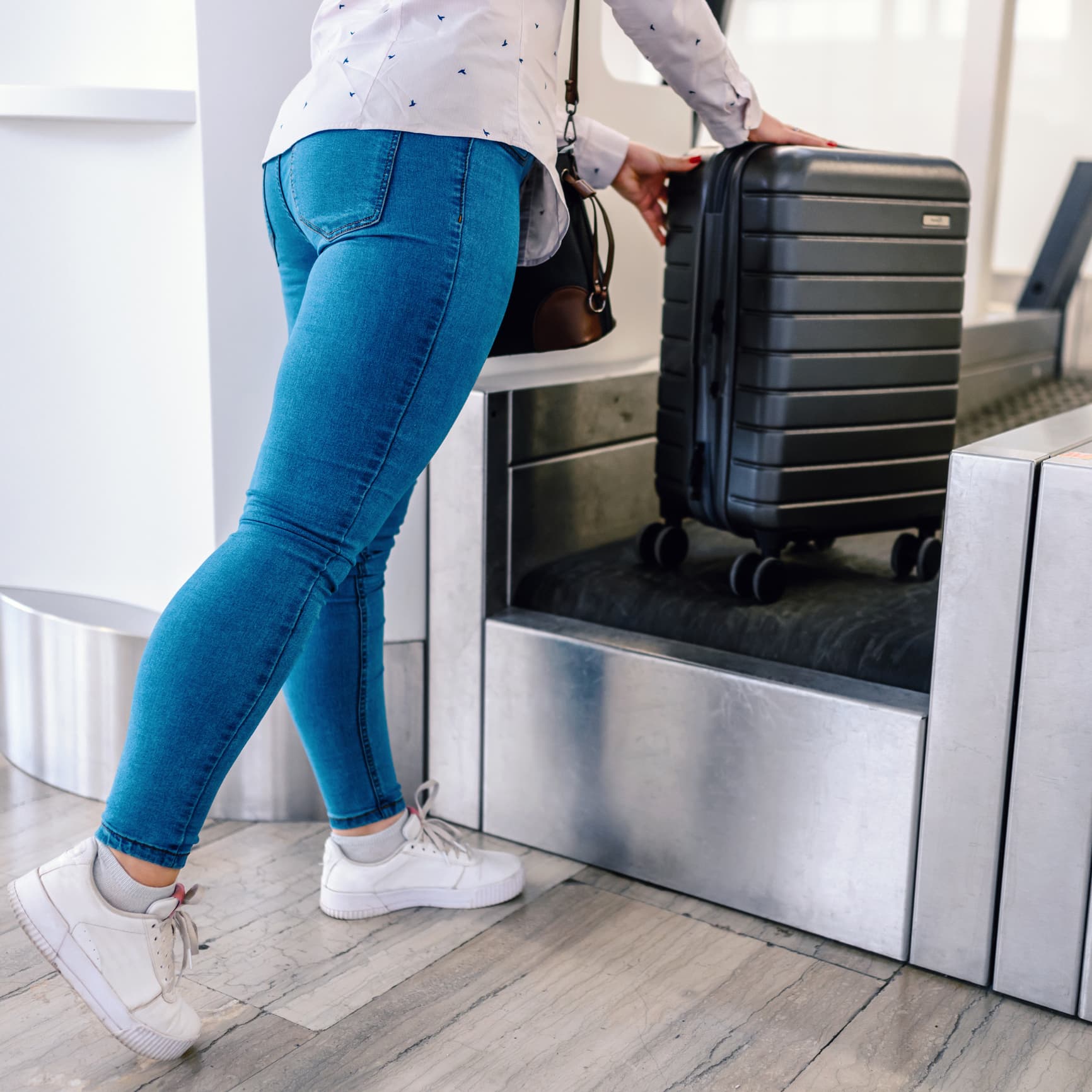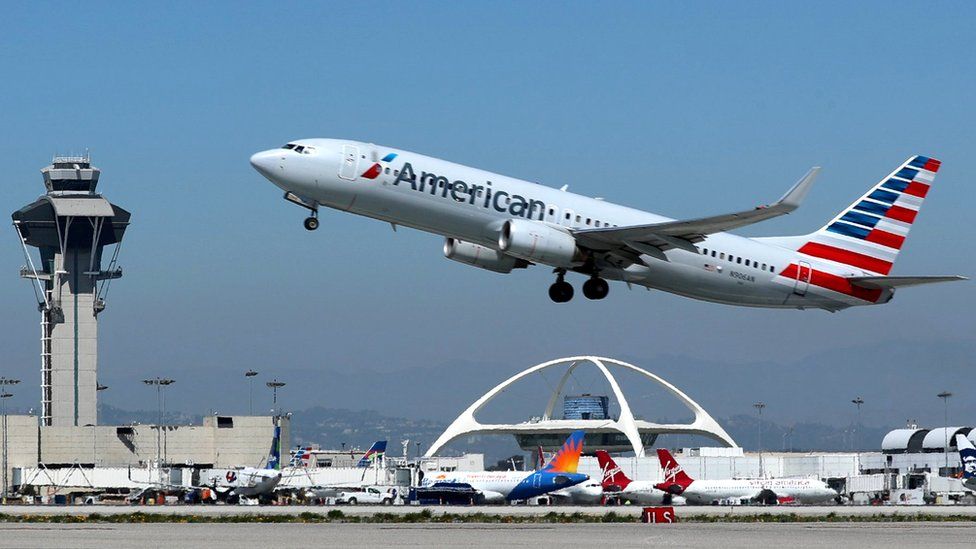Why Airlines Want Passengers To Weigh Themselves Before Boarding
So why airlines want passengers to weigh themselves before boarding? In recent times, many airlines have begun to contemplate the implementation of a practice wherein passengers are required to undergo weight measurements before boarding, despite its previous perception as impolite and inconceivable.
Author:Michael RachalReviewer:Finn WildeSep 19, 202344.9K Shares1M Views

So why airlines want passengers to weigh themselves before boarding? In recent times, many airlines have begun to contemplate the implementation of a practice wherein passengers are required to undergo weight measurements before boarding, despite its previous perception as impolite and inconceivable.
In order to comply with stringent weight restriction regulations imposed on each aircraft, it is imperative to enhance the accuracy of weight calculations for all passengers and cargo being loaded onto the aircraft.
Another airline will soon be required to undergo a pre-boarding weigh-in. Commencing on Monday, Korean Air customers may be requested to undergo a weight measurement procedure prior to embarking on their journey.
A spokesman from Korean Air said that all Korean flag carriers are obligated by law to participate in an exercise that lasts around three weeks. This exercise is mandated by legal regulations.
A person interviewed by CNBC said that it is imperative for flight safety that airlines adhere to the legal requirement of periodically weighing people and their carry-on luggage, with a minimum frequency of once every five years.
Local media reports stated that the people responded to the news with strong opposition. The airline has withdrawn a notification from its website regarding an upcoming exercise that was scheduled to commence at Gimpo International Airport on Monday, followed by Incheon Airport next month. The reason for the removal was stated as "sufficient notice and media coverage."
Is It Fair To Weigh Passengers?
CEO of the aviation safety company Afuzion said:
“„Definitely not. At least not for the purpose of safety.- Vance Hilderman
He continued:
“„If you’re at a small Bombardier, a small Embraer jet, and we had 10 very obese people … it could make a small difference. On commercial aircraft, anything from a 737 and above you know, 120 people, we have it built in.- Vance Hilderman
According to Hilderman, the collective weight of gasoline, cargo, and the airplane itself would overshadow any substantial rise in passenger weight.
“„Fuel is 20 times more than the passenger weight.- Vance Hilderman
According to Shem Malmquist, a teacher at Florida Tech's College of Aeronautics, the use of random weight samples is a commendable approach. The current practice involves utilizing average weights of passengers; nonetheless, there is a noticeable trend of increased body weight among individuals.
The presence of three hundred individuals with weights exceeding the average can lead to a substantial increase in the overall weight of an airplane.
Consequently, many performance calculations such as runway length, climb rate, obstacle clearing, landing distances, and altitude capabilities are all contingent upon the aircraft's weight, among other factors.
Hilderman concurs with the notion that individuals are seeing an increase in physical size. However, he also thinks that passengers currently exhibit variations in other aspects as well.
“„Americans are getting heavier. So are Chinese, so are Koreans. But we’re also flying younger … so it’s actually offset the average human’s weight increase.- Vance Hilderman
According to a study published in the Journal of Transport & Health in 2019, it was shown that areas with greater rates of obesity would see notable reductions in safety margins if the upward trajectory of weight gain persists.
According to Jose Silva, an associate professor at RMIT University's School of Engineering and one of the authors of the study, there appears to be a hesitancy among airlines to measure the weight of passengers, maybe due to the sensitive nature of the subject matter.
“„There is also a lack of understanding of the safety gains which could be obtained if there were more accurate means to ascertain the passengers’ weight, instead of relying on standards.- Jose Silva
In line with a whistleblower complaint lodged in 2021, it has been asserted that the U.S. Federal Aviation Administration (FAA) has exhibited a failure to acknowledge safety concerns arising from its reliance on average passenger or luggage weights that are no longer representative of the current U.S. population.
This Initiative Soon To Reach U.S. Airlines
A comparable endeavor was undertaken previously by Air New Zealand (ANZFF) in the earlier part of the year. From May to July 2023, travelers who were checking in for an international trip at Auckland Airport were similarly requested to stand on a scale in order to contribute weight data to an anonymized collective.
The airline has previously undertaken a comparable poll two years prior and intends to consistently perform such surveys in order to obtain current statistics on passenger weights.
The implementation of the survey in the context of Korean Air was not initiated by the airline itself but rather mandated by the transportation ministry. This measure was undertaken with the aim of ensuring precise assessments of aircraft.
Although U.S. airlines have not yet attempted a comparable approach, aviation experts say that the possibility of such an endeavor in the future cannot be discounted.
In 2021, the Federal Aviation Administration (FAA) released an advisory suggesting the utilization of passenger weight measurement as a potential method for estimating total weight and ensuring compliance with the permissible aircraft limit. However, due to the potential for embarrassment among certain travelers, this approach is not regarded as the most favorable alternative.
According to an aviation expert from NBC News, as mentioned on an episode of the "Today Show," Air New Zealand made the survey announcement in May:
“„It's critically important for the safety of flight that you know how much the airplane weighs — it's particularly certificated to perform in a given way at a given weight.- John Cox
The Importance Of Passenger Weight And Balance In Air Travel
When you step onto a plane for your next adventure or business trip, the last thing on your mind is probably the technical intricacies of aviation. Yet, one critical factor that significantly influences your safety and the overall efficiency of the flight is passenger weight and balance.
The Basics Of Weight And Balance
Weight and balance constitute the foundation of aviation safety. Analogous to a seesaw requiring balanced weights on both sides to remain level, an aircraft must maintain precise weight and balance to ensure stability throughout its journey.
The weight of an aircraft, comprising passengers, cargo, fuel, and equipment, must be distributed in such a way that the aircraft neither tilts too far forward nor leans too far backward. An improper weight distribution can lead to stability and control issues, potentially compromising the safety of the flight.
Safety Takes Precedence
Safety is the cornerstone of the aviation industry. Maintaining the correct weight and balance is an indispensable aspect of ensuring the safety of every flight. Here's why passenger weight matters:
- Aircraft Stability - The distribution of weight within an aircraft directly affects its stability and maneuverability. Pilots need to maintain precise control over the aircraft, especially during the critical phases of takeoff and landing. An imbalanced aircraft can prove challenging to control, potentially leading to dangerous situations.
- Fuel Efficiency - An aircraft's fuel consumption is intricately linked to its weight. A heavier plane necessitates more fuel to attain and sustain altitude. Effective fuel management not only saves costs for airlines but also contributes to reducing the environmental footprint of aviation, an ever-important consideration in our modern world.
- Load Limits - Every aircraft type has predetermined weight limits that must be strictly adhered to for safety reasons. Overloading an aircraft can result in structural damage or, in extreme cases, catastrophic failure. To prevent such dire outcomes, airlines meticulously calculate the collective weight of passengers, cargo, and fuel before each flight.
Weight Data Collection
To maintain proper weight and balance, airlines employ various methods to collect passenger weight data:
- Estimates - Passengers are typically asked to provide an estimate of their weight when booking a ticket. This practice is commonplace and aids airlines in approximating the overall weight of passengers.
- Random Surveys - Some airlines conduct random surveys to gather weight data. Passengers are requested to participate voluntarily, and their responses remain anonymous. This approach enhances the accuracy of weight calculations.
- Cargo and Baggage - Airlines also account for the weight of checked baggage and cargo. The correct loading and placement of these items are critical for maintaining balance during flight.
The Passenger Perspective - Why Some Are Reluctant
Understanding the importance of passenger weight and balance in air travelis undoubtedly crucial, but it's equally important to acknowledge why some passengers may be apprehensive about the idea of disclosing their weight before boarding. Here are some of the key reasons behind this reluctance:
- Privacy Concerns - One of the foremost concerns is privacy. Many passengers consider their weight to be a personal matter, and disclosing it to airline personnel can feel intrusive. They worry that this information could be misused or mishandled, leading to uncomfortable situations or discrimination.
- Body Image and Self-Esteem - Body image is a sensitive issue for many individuals. Requiring passengers to disclose their weight may trigger feelings of self-consciousness, anxiety, or embarrassment, potentially detracting from the overall travel experience. Some passengers may fear judgment from airline staff or fellow travelers based on their weight.
- Fear of Discrimination - There's a fear, however unwarranted, that airlines might discriminate against passengers based on their weight. Some passengers worry that if they exceed a certain weight threshold, they could face additional charges or even be denied boarding altogether. This concern can add stress to the already nerve-wracking experience of air travel.
- Stigmatization - The act of measuring passenger weight could inadvertently contribute to the stigmatization of overweight or obese individuals. It's essential to create an inclusive and non-discriminatory environment for all travelers, regardless of their body size.
- Logistical Challenges - Passengers may also perceive the process of collecting and managing weight data as cumbersome and time-consuming. They may worry that it could lead to delays or longer waiting times at the airport, further inconveniencing them.
Balancing Safety And Passenger Comfort
Maintaining a balance between passenger privacy and safety concerns is essential for airlines. Airlines understand the sensitivities surrounding weight data collection and have implemented measures to address these concerns:
- Voluntary Participation - Many airlines emphasize that providing weight information is voluntary. Passengers are not obligated to disclose their weight, and those who are uncomfortable with the request can choose not to participate.
- Anonymity and Confidentiality - Airlines take steps to ensure that passenger weight data remains confidential and is not used for any purpose other than flight safety and operational requirements. Anonymity is often maintained to protect passengers' privacy.
- Education and Sensitivity Training - Airline personnel receive training to handle weight-related issues with sensitivity and respect. They are trained to provide a positive and non-judgmental experience for all passengers.
- Transparency - Airlines can communicate their reasons for collecting weight data, emphasizing that it is primarily for safety and operational purposes. Transparency can help passengers better understand the necessity of this practice.
The collection of passenger weight data before boarding remains a contentious issue, primarily due to concerns related to privacy, body image, discrimination, and logistical challenges. While airlines prioritize safety and efficient operations, they must also be considerate of passengers' feelings and concerns.
People Also Ask
How Do Airlines Ensure The Privacy And Confidentiality Of Passenger Weight Data?
Airlines take privacy and data confidentiality seriously. When weight data is collected, it is often done anonymously, with no personally identifiable information attached to it.
Airlines have strict protocols and security measures in place to protect this information and ensure it is used solely for flight safety and operational purposes. Compliance with data privacy regulations, where applicable, further safeguards passenger information.
Are There Weight Restrictions For Passengers, And What Happens If I Exceed Them?
Weight restrictions for passengers are less common than those for baggage and cargo. Most airlines focus on managing the overall weight and balance of the aircraft rather than individual passenger weight.
However, some smaller aircraft or charter flights may have specific weight limits for passengers, which are communicated in advance. If a passenger exceeds these limits, the airline will typically provide guidance on potential solutions, such as adjusting seating arrangements or, in rare cases, requiring an additional seat purchase.
What Measures Do Airlines Take To Prevent Discrimination Based On Passenger Weight?
Airlines are committed to providing an inclusive and non-discriminatory environment for all passengers, regardless of their body size. They often have policies in place that strictly prohibit any form of discrimination based on weight.
Additionally, airline staff receive training to handle weight-related issues with sensitivity and respect. If passengers encounter any discriminatory behavior or have concerns related to their weight, they are encouraged to report it to the airline for appropriate action to be taken.
Final Words
People have different reactions about why airlines want passengers to weigh themselves before boarding. Striking the right balance between safety and passenger comfort is an ongoing challenge, and airlines will continue to adapt their practices to ensure that all travelers have a positive and respectful experience during air travel.
Ultimately, open communication between airlines and passengers is essential to addressing these concerns and finding solutions that work for everyone involved.

Michael Rachal
Author
Michael Rachal believes that luxury lies in the details. With over 20 years of experience in the luxury travel industry, he has crafted hundreds of bespoke itineraries for clients seeking personalized, unforgettable experiences.
Whether guiding clients through private cultural tours or curating culinary journeys with world-renowned chefs, Michael ensures that each trip is tailored to perfection.
His ability to anticipate needs and exceed expectations has earned him a reputation as a leading expert in luxury travel.

Finn Wilde
Reviewer
For Finn Wilde, the wilderness is more than just a destination - it’s a way of life. Over the past decade, he has led multiple expeditions in some of the world’s most remote regions, from the icy fjords of Greenland to the rugged trails of Patagonia.
Finn emphasizes sustainability in all of his adventures, helping participants connect with nature while promoting responsible exploration. His expeditions inspire individuals to explore the great outdoors while fostering a deep respect for the environment.
Latest Articles
Popular Articles
